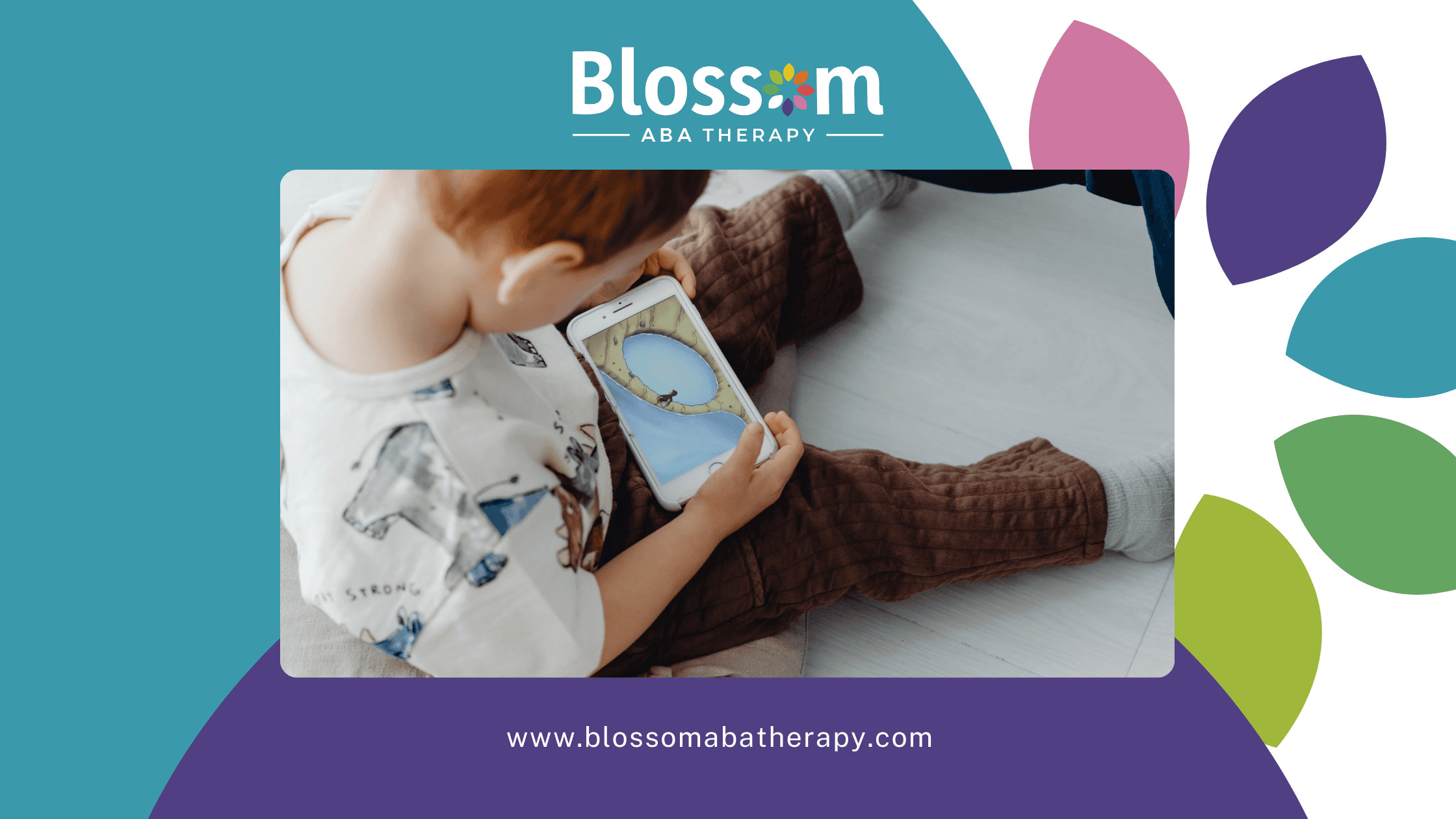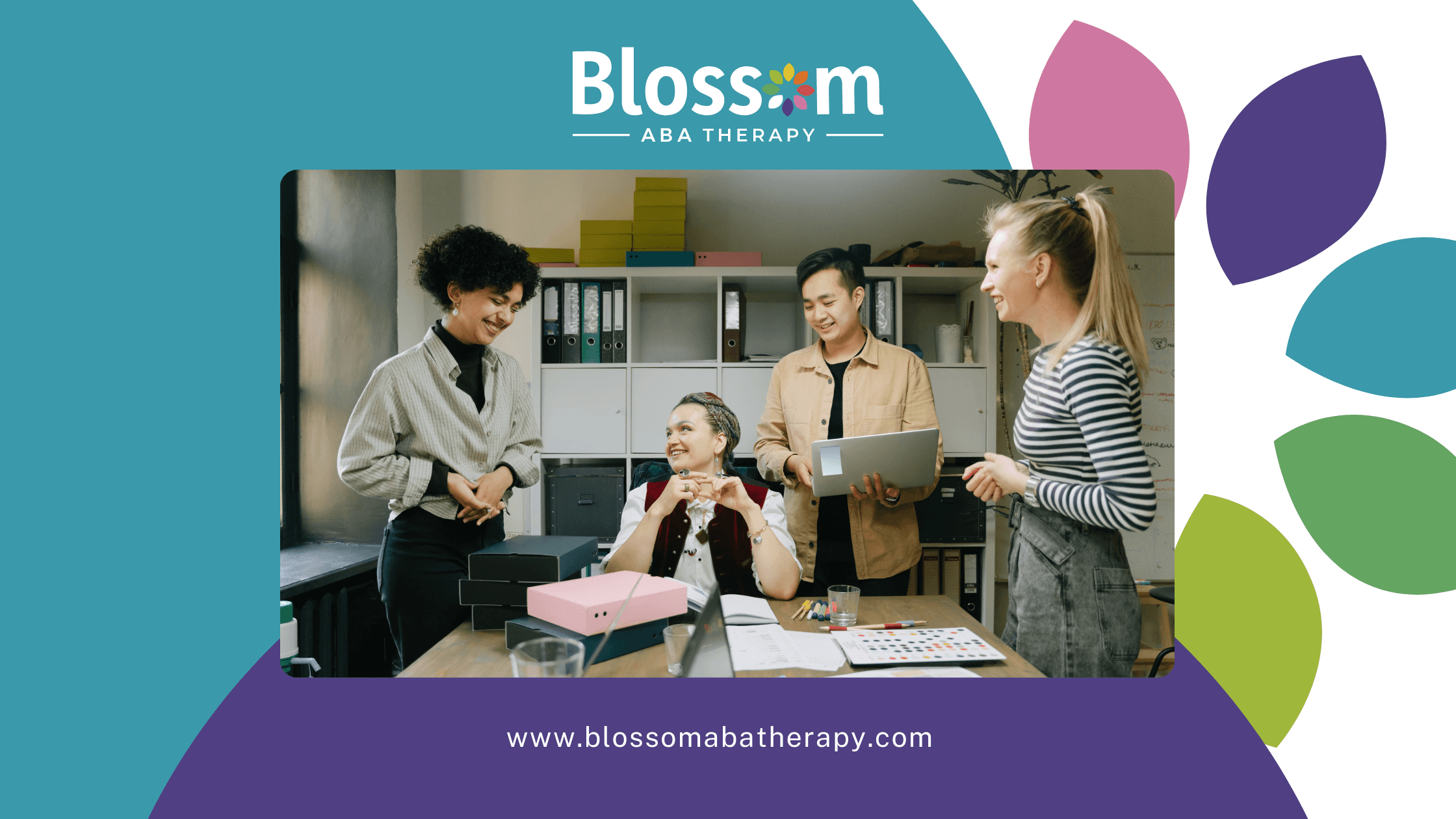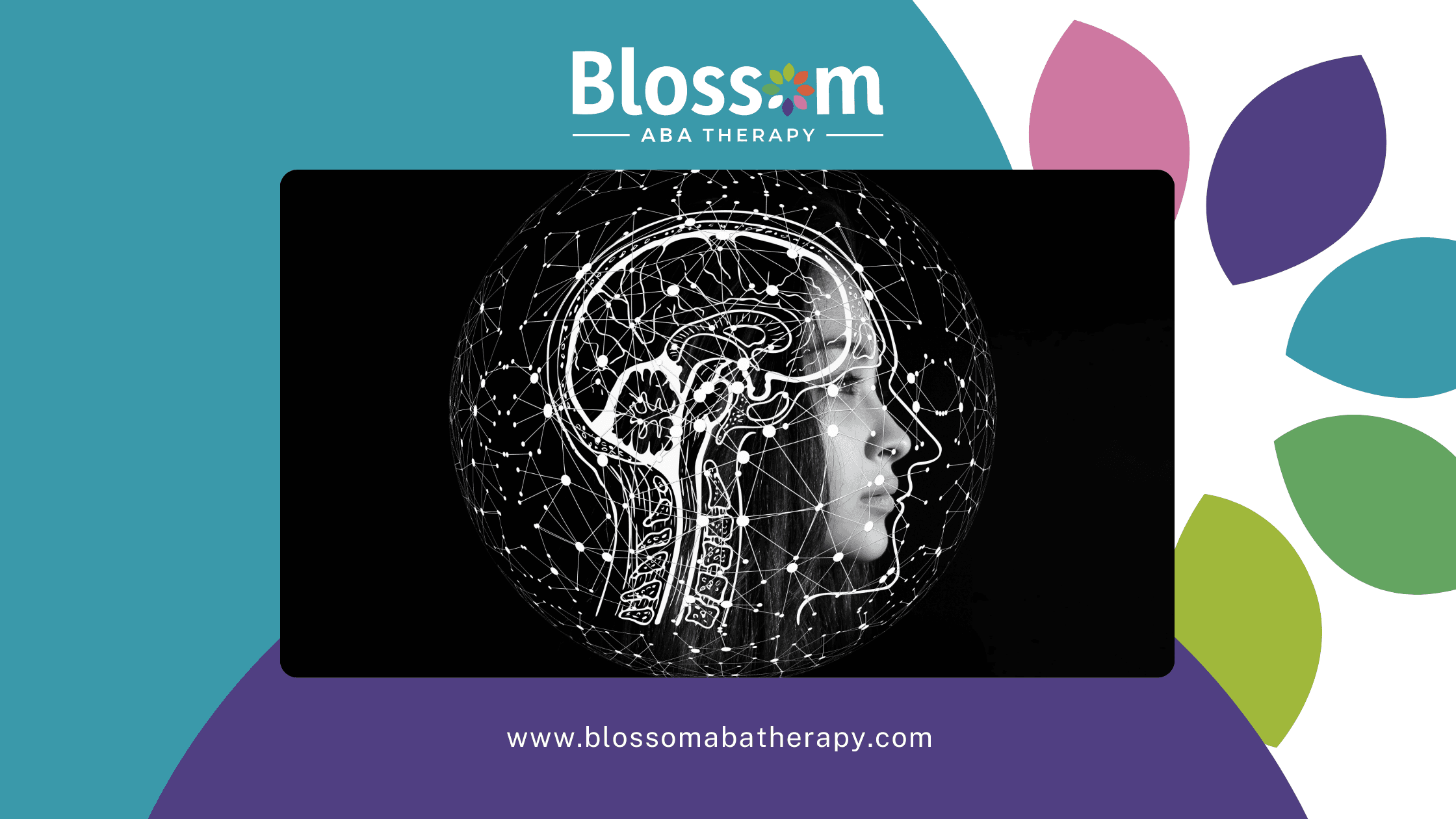Our New Clinic in Peachtree Corners is Now Open! Serving families in Norcross, Dunwoody, Sandy Springs, Duluth, Johns Creek, Alpharetta, Roswell, Suwanee, Brookhaven & nearby areas.

What Is Allistic? Breaking Down a Common Autism Term Everyone Should Know
Oct 23, 2025

What Is Allistic? Breaking Down a Common Autism Term Everyone Should Know
Oct 23, 2025

What Is Allistic? Breaking Down a Common Autism Term Everyone Should Know
Oct 23, 2025

What Is Allistic? Breaking Down a Common Autism Term Everyone Should Know
Oct 23, 2025
Find out what allistic means, how it differs from autistic, and why it’s important for inclusion. Learn more about ABA therapy from Blossom ABA Therapy.
Ever heard the term allistic and wondered what it really means? Simply put, “allistic” refers to anyone who is not autistic. It’s a respectful, inclusive word used within the autism and neurodiversity communities to describe non-autistic people. Instead of saying “normal,” allistic helps us talk about differences in how people think and experience the world — without judgment.
Understanding What “Allistic” Means
The word allistic comes from the Greek allos, meaning “other.” It was created to describe people who don’t have autism in a neutral way. In discussions about autism, neurodiversity, and ABA therapy, the term helps highlight that both autistic and allistic people experience the world differently — and both perspectives are valuable.
Here’s how the terms break down:
Autistic: Someone diagnosed with autism spectrum disorder (ASD)
Allistic: Someone who is not autistic
Neurotypical: Someone whose brain functions within typical social and developmental expectations
You might see allistic used in autism communities, advocacy spaces, or educational resources to promote understanding and inclusion. It reminds us that not being autistic is simply one way of being — not the default or the “normal” way.
The Role of “Allistic” in Autism and Neurodiversity Conversations
In conversations about autism awareness, autism acceptance, and neurodiversity, language makes a big difference. The word allistic encourages people to view autism as a natural variation in human thinking and behavior, not as something to be compared against a “normal” standard.
For example, when we understand both autistic and allistic communication styles, we can improve empathy, relationships, and social understanding. This is especially important in autism therapy and ABA (Applied Behavior Analysis) therapy, where recognizing how allistic therapists and autistic clients may perceive the world differently leads to better outcomes.
ABA Therapy Support for Families
If your child has autism and you’re looking for compassionate, individualized care, Blossom ABA Therapy provides high-quality ABA therapy for children with autism. Our team focuses on helping kids build communication, social, and daily living skills in a supportive environment.
Blossom ABA offers flexible, family-focused services such as:
Home-based ABA — one-on-one autism therapy at home
Center-based ABA — structured learning in a safe, social setting
School-based ABA — in-school support for academic and behavioral success
We proudly serve families throughout Georgia, Tennessee, Virginia, and North Carolina.
Contact Blossom ABA Therapy today to learn more about personalized ABA therapy for your child. Our experienced therapists are here to help your family grow and thrive.
FAQs
What does allistic mean in autism?
In autism discussions, allistic simply means “not autistic.” It’s a neutral term used to describe people who do not have autism spectrum disorder (ASD).
Is there a difference between allistic and neurotypical?
Yes. While allistic means “not autistic,” neurotypical refers to people whose brains function in socially typical ways. Someone can be allistic but still neurodivergent — for example, someone with ADHD or dyslexia.
Why is the word allistic important in autism and ABA therapy?
Using inclusive language like allistic promotes understanding and respect between autistic and non-autistic individuals. It’s especially useful in ABA therapy and autism education, where clear, compassionate communication makes a big difference.
Sources:
https://my.clevelandclinic.org/health/articles/neurotypical
https://dictionary.cambridge.org/dictionary/english/allistic
https://www.health.harvard.edu/blog/what-is-neurodiversity-202111232645
https://my.clevelandclinic.org/health/symptoms/23154-neurodivergent
https://www.autism.org.uk/advice-and-guidance/topics/identity/autism-and-neurodiversity
Ever heard the term allistic and wondered what it really means? Simply put, “allistic” refers to anyone who is not autistic. It’s a respectful, inclusive word used within the autism and neurodiversity communities to describe non-autistic people. Instead of saying “normal,” allistic helps us talk about differences in how people think and experience the world — without judgment.
Understanding What “Allistic” Means
The word allistic comes from the Greek allos, meaning “other.” It was created to describe people who don’t have autism in a neutral way. In discussions about autism, neurodiversity, and ABA therapy, the term helps highlight that both autistic and allistic people experience the world differently — and both perspectives are valuable.
Here’s how the terms break down:
Autistic: Someone diagnosed with autism spectrum disorder (ASD)
Allistic: Someone who is not autistic
Neurotypical: Someone whose brain functions within typical social and developmental expectations
You might see allistic used in autism communities, advocacy spaces, or educational resources to promote understanding and inclusion. It reminds us that not being autistic is simply one way of being — not the default or the “normal” way.
The Role of “Allistic” in Autism and Neurodiversity Conversations
In conversations about autism awareness, autism acceptance, and neurodiversity, language makes a big difference. The word allistic encourages people to view autism as a natural variation in human thinking and behavior, not as something to be compared against a “normal” standard.
For example, when we understand both autistic and allistic communication styles, we can improve empathy, relationships, and social understanding. This is especially important in autism therapy and ABA (Applied Behavior Analysis) therapy, where recognizing how allistic therapists and autistic clients may perceive the world differently leads to better outcomes.
ABA Therapy Support for Families
If your child has autism and you’re looking for compassionate, individualized care, Blossom ABA Therapy provides high-quality ABA therapy for children with autism. Our team focuses on helping kids build communication, social, and daily living skills in a supportive environment.
Blossom ABA offers flexible, family-focused services such as:
Home-based ABA — one-on-one autism therapy at home
Center-based ABA — structured learning in a safe, social setting
School-based ABA — in-school support for academic and behavioral success
We proudly serve families throughout Georgia, Tennessee, Virginia, and North Carolina.
Contact Blossom ABA Therapy today to learn more about personalized ABA therapy for your child. Our experienced therapists are here to help your family grow and thrive.
FAQs
What does allistic mean in autism?
In autism discussions, allistic simply means “not autistic.” It’s a neutral term used to describe people who do not have autism spectrum disorder (ASD).
Is there a difference between allistic and neurotypical?
Yes. While allistic means “not autistic,” neurotypical refers to people whose brains function in socially typical ways. Someone can be allistic but still neurodivergent — for example, someone with ADHD or dyslexia.
Why is the word allistic important in autism and ABA therapy?
Using inclusive language like allistic promotes understanding and respect between autistic and non-autistic individuals. It’s especially useful in ABA therapy and autism education, where clear, compassionate communication makes a big difference.
Sources:
https://my.clevelandclinic.org/health/articles/neurotypical
https://dictionary.cambridge.org/dictionary/english/allistic
https://www.health.harvard.edu/blog/what-is-neurodiversity-202111232645
https://my.clevelandclinic.org/health/symptoms/23154-neurodivergent
https://www.autism.org.uk/advice-and-guidance/topics/identity/autism-and-neurodiversity
Ever heard the term allistic and wondered what it really means? Simply put, “allistic” refers to anyone who is not autistic. It’s a respectful, inclusive word used within the autism and neurodiversity communities to describe non-autistic people. Instead of saying “normal,” allistic helps us talk about differences in how people think and experience the world — without judgment.
Understanding What “Allistic” Means
The word allistic comes from the Greek allos, meaning “other.” It was created to describe people who don’t have autism in a neutral way. In discussions about autism, neurodiversity, and ABA therapy, the term helps highlight that both autistic and allistic people experience the world differently — and both perspectives are valuable.
Here’s how the terms break down:
Autistic: Someone diagnosed with autism spectrum disorder (ASD)
Allistic: Someone who is not autistic
Neurotypical: Someone whose brain functions within typical social and developmental expectations
You might see allistic used in autism communities, advocacy spaces, or educational resources to promote understanding and inclusion. It reminds us that not being autistic is simply one way of being — not the default or the “normal” way.
The Role of “Allistic” in Autism and Neurodiversity Conversations
In conversations about autism awareness, autism acceptance, and neurodiversity, language makes a big difference. The word allistic encourages people to view autism as a natural variation in human thinking and behavior, not as something to be compared against a “normal” standard.
For example, when we understand both autistic and allistic communication styles, we can improve empathy, relationships, and social understanding. This is especially important in autism therapy and ABA (Applied Behavior Analysis) therapy, where recognizing how allistic therapists and autistic clients may perceive the world differently leads to better outcomes.
ABA Therapy Support for Families
If your child has autism and you’re looking for compassionate, individualized care, Blossom ABA Therapy provides high-quality ABA therapy for children with autism. Our team focuses on helping kids build communication, social, and daily living skills in a supportive environment.
Blossom ABA offers flexible, family-focused services such as:
Home-based ABA — one-on-one autism therapy at home
Center-based ABA — structured learning in a safe, social setting
School-based ABA — in-school support for academic and behavioral success
We proudly serve families throughout Georgia, Tennessee, Virginia, and North Carolina.
Contact Blossom ABA Therapy today to learn more about personalized ABA therapy for your child. Our experienced therapists are here to help your family grow and thrive.
FAQs
What does allistic mean in autism?
In autism discussions, allistic simply means “not autistic.” It’s a neutral term used to describe people who do not have autism spectrum disorder (ASD).
Is there a difference between allistic and neurotypical?
Yes. While allistic means “not autistic,” neurotypical refers to people whose brains function in socially typical ways. Someone can be allistic but still neurodivergent — for example, someone with ADHD or dyslexia.
Why is the word allistic important in autism and ABA therapy?
Using inclusive language like allistic promotes understanding and respect between autistic and non-autistic individuals. It’s especially useful in ABA therapy and autism education, where clear, compassionate communication makes a big difference.
Sources:
https://my.clevelandclinic.org/health/articles/neurotypical
https://dictionary.cambridge.org/dictionary/english/allistic
https://www.health.harvard.edu/blog/what-is-neurodiversity-202111232645
https://my.clevelandclinic.org/health/symptoms/23154-neurodivergent
https://www.autism.org.uk/advice-and-guidance/topics/identity/autism-and-neurodiversity
Ever heard the term allistic and wondered what it really means? Simply put, “allistic” refers to anyone who is not autistic. It’s a respectful, inclusive word used within the autism and neurodiversity communities to describe non-autistic people. Instead of saying “normal,” allistic helps us talk about differences in how people think and experience the world — without judgment.
Understanding What “Allistic” Means
The word allistic comes from the Greek allos, meaning “other.” It was created to describe people who don’t have autism in a neutral way. In discussions about autism, neurodiversity, and ABA therapy, the term helps highlight that both autistic and allistic people experience the world differently — and both perspectives are valuable.
Here’s how the terms break down:
Autistic: Someone diagnosed with autism spectrum disorder (ASD)
Allistic: Someone who is not autistic
Neurotypical: Someone whose brain functions within typical social and developmental expectations
You might see allistic used in autism communities, advocacy spaces, or educational resources to promote understanding and inclusion. It reminds us that not being autistic is simply one way of being — not the default or the “normal” way.
The Role of “Allistic” in Autism and Neurodiversity Conversations
In conversations about autism awareness, autism acceptance, and neurodiversity, language makes a big difference. The word allistic encourages people to view autism as a natural variation in human thinking and behavior, not as something to be compared against a “normal” standard.
For example, when we understand both autistic and allistic communication styles, we can improve empathy, relationships, and social understanding. This is especially important in autism therapy and ABA (Applied Behavior Analysis) therapy, where recognizing how allistic therapists and autistic clients may perceive the world differently leads to better outcomes.
ABA Therapy Support for Families
If your child has autism and you’re looking for compassionate, individualized care, Blossom ABA Therapy provides high-quality ABA therapy for children with autism. Our team focuses on helping kids build communication, social, and daily living skills in a supportive environment.
Blossom ABA offers flexible, family-focused services such as:
Home-based ABA — one-on-one autism therapy at home
Center-based ABA — structured learning in a safe, social setting
School-based ABA — in-school support for academic and behavioral success
We proudly serve families throughout Georgia, Tennessee, Virginia, and North Carolina.
Contact Blossom ABA Therapy today to learn more about personalized ABA therapy for your child. Our experienced therapists are here to help your family grow and thrive.
FAQs
What does allistic mean in autism?
In autism discussions, allistic simply means “not autistic.” It’s a neutral term used to describe people who do not have autism spectrum disorder (ASD).
Is there a difference between allistic and neurotypical?
Yes. While allistic means “not autistic,” neurotypical refers to people whose brains function in socially typical ways. Someone can be allistic but still neurodivergent — for example, someone with ADHD or dyslexia.
Why is the word allistic important in autism and ABA therapy?
Using inclusive language like allistic promotes understanding and respect between autistic and non-autistic individuals. It’s especially useful in ABA therapy and autism education, where clear, compassionate communication makes a big difference.
Sources:
https://my.clevelandclinic.org/health/articles/neurotypical
https://dictionary.cambridge.org/dictionary/english/allistic
https://www.health.harvard.edu/blog/what-is-neurodiversity-202111232645
https://my.clevelandclinic.org/health/symptoms/23154-neurodivergent
https://www.autism.org.uk/advice-and-guidance/topics/identity/autism-and-neurodiversity
Allistic in Autism: Understanding Neurodiversity & Inclusion
Allistic in Autism: Understanding Neurodiversity & Inclusion


Seeking Support?
We're Here to Help!
Our dedicated professionals specialize in ABA therapy to foster your child's growth and happiness. We're here to provide the personalized care and attention your child deserves. Reach out to learn how we can support your family's journey.
Connect With Our ABA Experts Today.
News & Blogs
News & Blogs
Latest News & Blogs
Latest News & Blogs
Latest News & Blogs
Latest News & Blogs

ARE YOU PASSIONATE ABOUT HELPING CHILDREN
ARE YOU PASSIONATE ABOUT HELPING CHILDREN
Join Our Team
Join Our Team
Join Our Team
Join Our Team
Blossom Therapy constantly seeks qualified BCBAs and RBTs to fill full and part-time positions.
Blossom Therapy constantly seeks qualified BCBAs and RBTs to fill full and part-time positions.
Blossom Therapy constantly seeks qualified BCBAs and RBTs to fill full and part-time positions.
Blossom Therapy constantly seeks qualified BCBAs and RBTs to fill full and part-time positions.






